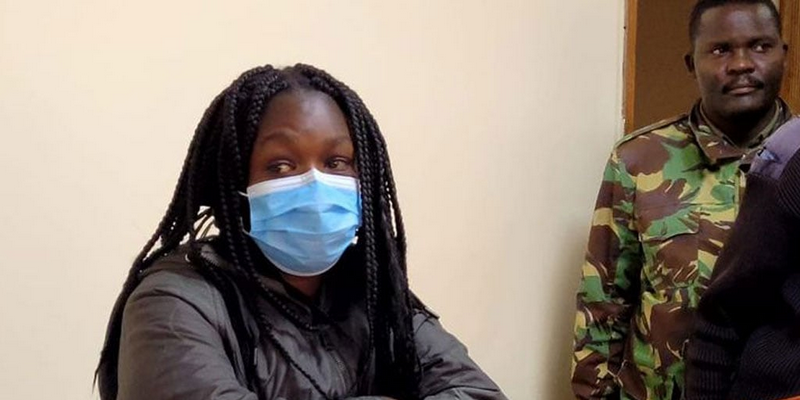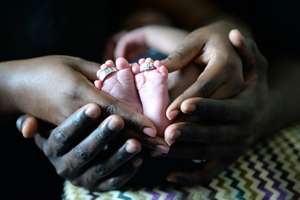
She Sang Hymns While Killing Her Baby
Reading Time: 3min
The story of Olivia Kaserran and her two-year-old daughter, Glory Njeri, is one of profound tragedy. In a horrifying incident in their Kitengela home, Olivia, a 24-year-old university student, stabbed her child to death, dismembered her, and was in the process of feeding on her entrails when neighbors intervened. While the brutality of the act is shocking, a closer look reveals a deeper, more systemic tragedy: the potential failure to identify and treat severe mental illness, which may have cost a young mother and her baby their futures.
The Incident: A Descent into Horror
On a Sunday night, the ordinary sounds of a home were replaced by blood-curdling screams. Neighbors, rushing to the scene thinking the family was under attack, found Olivia Kaserran naked, having brutally attacked her daughter while reportedly singing hymns. The house was in disarray, with furniture and electronics destroyed.
Before she was taken into police custody, Olivia provided a chilling explanation. She told the Nation, "I hate myself. I suffer from low self-esteem and that is why I killed my child. I have gone through a lot with my daughter". She revealed that she had first wanted to kill herself before turning the violence toward her child. These statements, along with her bizarre and violent behavior, point not to premeditated malice, but to a severe and acute mental health crisis.
The Unanswered Questions: Could This Have Been Prevented?
This tragedy forces us to ask a difficult question: were there warning signs that could have been spotted earlier? Mental health experts indicate that major mental illnesses rarely appear "out of the blue". Family, friends, and teachers often notice small changes or a feeling that "something is not quite right" before an illness appears in its full-blown form.
While specific details of Olivia's history are not public, her case aligns with known patterns. Research shows that homicides by mentally ill individuals are often linked to factors like untreated symptoms, substance abuse, and experiencing extreme personal stressors. Furthermore, in filicide cases (the killing of a child by a parent), mood disorders like major depression are consistently reported as being prevalent among the offenders.
Potential Early Warning Signs that Society Can Learn To Recognize:
Mood Changes: Rapid or dramatic shifts in emotions, or expressed feelings of self-hatred and low self-esteem, as Olivia herself stated.
Withdrawal: Pulling away from social interactions and losing interest in previously enjoyed activities.
Apathy: A loss of initiative or desire to participate in any activity.
Illogical Thinking: Unusual or exaggerated beliefs, or a sense of being disconnected from reality.
Decline in Functioning: An unusual drop in performance at school, work, or in daily tasks.
A Path Forward: The Power of Early Intervention
The goal is not to excuse the crime, but to understand its roots to prevent future tragedies. Early identification and accurate diagnosis of mental health conditions can alleviate enormous suffering for young people and their families. Research confirms that early intervention can significantly improve a person’s prognosis, reduce the risk of long-term disability, and prevent the condition from worsening.
This requires a community-wide effort:
Raising Awareness and Reducing Stigma: We must create an environment where discussing mental health concerns is safe, allowing individuals to seek help without shame
Routine Screenings: Integrating mental health screenings into routine healthcare visits and school programs can help identify at-risk individuals early
Improving Access to Care: Ensuring affordable, high-quality mental health services is critical for timely intervention and treatment
The horrific death of Glory Njeri is a loss that should move us from silence to action. By recognizing the potential signs of mental decline and creating a robust system of support and early intervention, we can work toward a future where individuals like Olivia Kaserran receive the help they desperately need before another innocent life is lost.

















